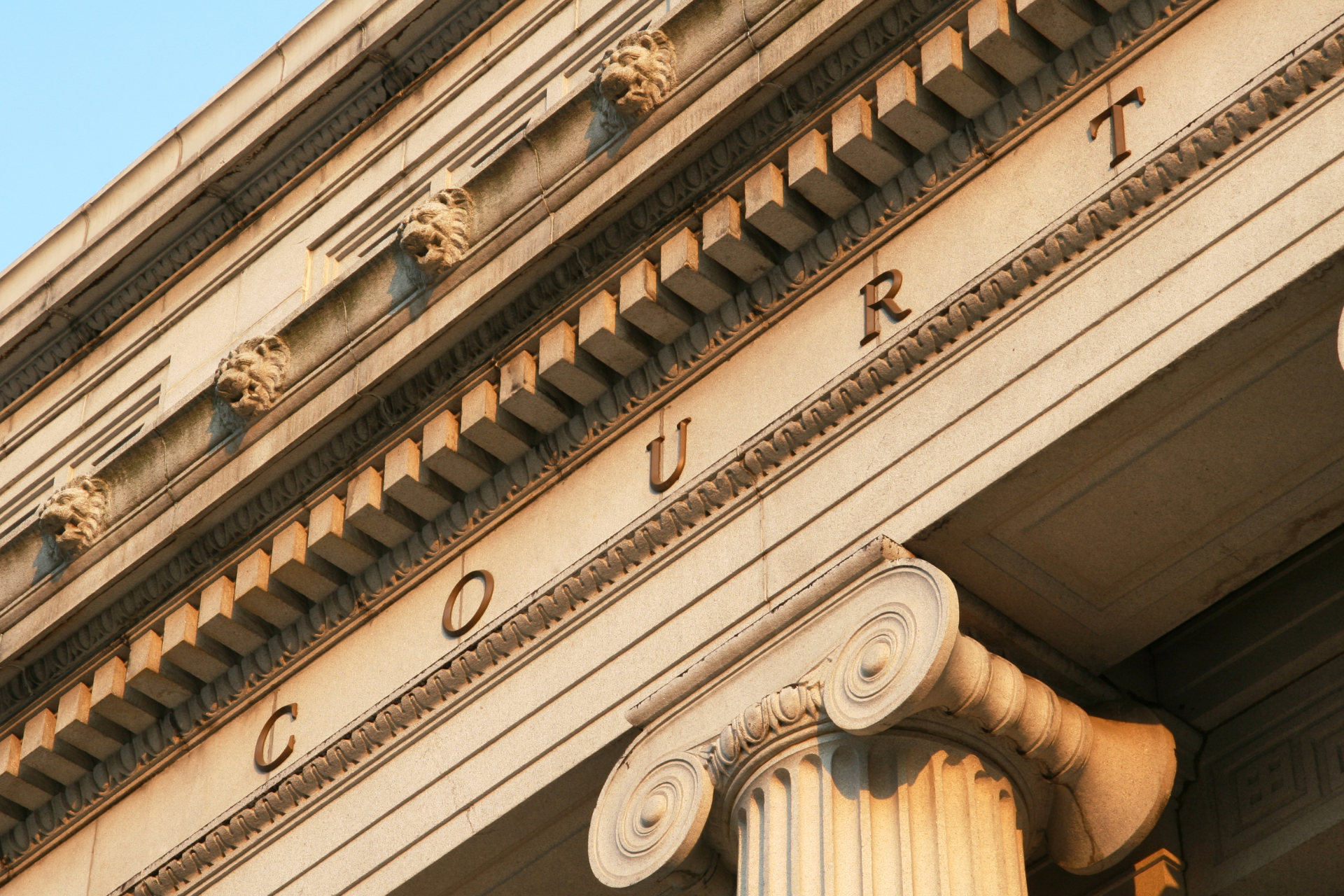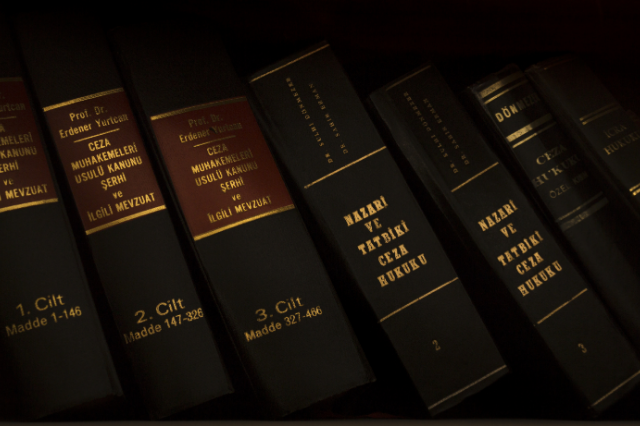Trusted criminal defense lawyer
Understand the legal implications of a Federal Crime. Conoscienti and Ledbetter provide defense strategies to protect your rights and ensure fair treatment under the law. Learn more about hate crime laws and how we can help.
 Author: J. Blake Ledbetter, Partner, Conoscienti & Ledbetter
Author: J. Blake Ledbetter, Partner, Conoscienti & Ledbetter
Mr. Ledbetter specializes in civil litigation in metropolitan Atlanta, Georgia, and possesses vast experience in wrongful death lawsuits. Mr. Ledbetter was recognized as a SuperLawyers Rising Star in 2018 and 2019 in the area of Civil Litigation. Published on May 27, 2025.

Speak with experienced criminal defense lawyer today, for free.
Atlanta Federal Criminal Defense Attorney
When the formidable weight of the federal justice system bears down, and you find yourself or a loved one facing federal charges, the experience can be overwhelming and deeply unsettling. The federal government, including the United States Department of Justice, wields immense resources and prosecutorial power, making the choice of legal representation one of the most critical decisions you will ever make. In these high-stakes situations, securing an experienced Atlanta Federal Criminal Defense Attorney is not just a recommendation; it’s an absolute necessity. At Conoscienti & Ledbetter, we understand the fear and uncertainty that accompany federal accusations. We are committed to providing an aggressive, knowledgeable, and empathetic defense for individuals across Atlanta and the state of Georgia. Our approach as your defender is rooted in a thorough understanding of federal law, a dedication to our clients’ rights, and a proactive strategy aimed at achieving the best possible outcome, including striving for an acquittal where the evidence permits. We believe that every person deserves a robust defense, and we are here to stand with you, navigate the complexities of the federal courts, and fight tirelessly on your behalf. This is more than just a case to us; it’s about your life, your liberty, and your future.
Understanding Federal Charges: Why You Need a Specialized Attorney
Facing any criminal charge is serious, but federal charges carry a unique set of challenges and potential consequences that demand specialized legal expertise. Not every Atlanta criminal lawyer is equipped to handle the intricacies of federal law and procedure.
What is a Federal Crime?
A federal crime is an offense that violates United States federal laws, as opposed to state or local laws. These crimes are typically investigated by a federal law enforcement agency such as the Federal Bureau of Investigation (FBI), the Drug Enforcement Administration (DEA), the Internal Revenue Service (IRS), Homeland Security Investigations (HSI), or the Bureau of Alcohol, Tobacco, Firearms and Explosives (ATF). Federal crimes are prosecuted by Assistant United States Attorneys in a United States district court. The authority for federal criminal laws stems from the U.S. Constitution, which grants Congress the power to enact laws in specific areas.
Common categories of federal crimes include:
- Offenses that cross state lines (interstate commerce).
- Crimes that occur on federal property.
- Offenses that specifically target federal agencies or officials.
- Complex white collar crimes, such as wire fraud or securities fraud.
- Serious drug trafficking offenses.
- Certain firearm or weapon violations.
- Immigration offenses.
- Child pornography.
- Terrorism-related offenses.
Understanding the jurisdiction and the specific statutes involved, often found within the United States Code, is the first step in building a defense.
Key Differences Between State and Federal Cases
While both state and federal criminal justice systems aim to uphold the law, there are significant differences that can impact a defendant’s rights and the overall case strategy:
- Investigative Agencies: State crimes are typically investigated by local or state police or a police officer, while federal crimes involve powerful federal agencies with extensive resources, often leading to more prolonged and in-depth investigations before charges are even filed.
- Prosecutors: State cases are handled by local district attorneys, while federal cases are prosecuted by Assistant U.S. Attorneys, who are part of the Department of Justice and often specialize in particular types of federal crime.
- Laws and Procedures: Federal criminal procedure is governed by the Federal Rules of Criminal Procedure (Source: U.S. Courts), which differ significantly from Georgia’s state criminal procedures. Federal laws often carry mandatory minimum sentences and are guided by the Federal Sentencing Guidelines. The Speedy Trial Act also imposes specific timelines in federal cases.
- Sentencing: Federal sentences are often harsher than state sentences for similar conduct. The Federal Sentencing Guidelines provide a framework based on the offense level and the defendant’s criminal record, and judges must calculate and consider these guidelines. Many federal statutes also impose mandatory minimum sentences, which limit a judge’s discretion to impose a sentence below a certain threshold, particularly in drug and firearm cases. For instance, certain drug trafficking offenses under 21 U.S.C. § 841 can carry 5-year, 10-year, or even longer mandatory minimums depending on the type and quantity of controlled substance.
- Resources: The federal government has vast financial and personnel resources for investigating and prosecuting cases, often dwarfing what is available at the state level. This means they can build very detailed and complex cases.
- Plea Bargaining: While plea bargaining occurs in both systems, the process and the pressures can be different in federal court. Federal prosecutors often have significant leverage due to the severity of potential sentences and the high conviction rates in federal court.
An Atlanta Federal Criminal Defense Attorney from Conoscienti & Ledbetter understands these crucial distinctions and can navigate the federal system effectively.
The Stakes are High: Potential Consequences of a Federal Conviction
A federal conviction carries severe and life-altering consequences that extend far beyond potential imprisonment and fines. Understanding these stakes underscores the importance of a skilled defense against charges that could range from a misdemeanor to a serious felony.
- Lengthy Prison Sentences: As mentioned, federal sentences, particularly for crimes involving drugs, firearms, or significant financial loss, can be extraordinarily long due to statutory sentencing ranges and the Federal Sentencing Guidelines. Many individuals serve time in a federal prison managed by the Federal Bureau of Prisons. According to the United States Sentencing Commission, in Fiscal Year 2023, the average sentence length for federally sentenced offenders was 56 months.
- Substantial Fines and Restitution: Federal law often provides for significant fines that can reach hundreds of thousands or even millions of dollars. Additionally, courts will typically order restitution to victims for any financial loss incurred. This can also involve asset forfeiture proceedings.
- Supervised Release: Instead of parole, the federal system uses “supervised release” following a prison term. This involves strict conditions that, if violated, can lead to re-incarceration. The term of supervised release can last for many years.
- Loss of Civil Rights: A felony conviction results in the loss of certain civil rights, including:
- The right to vote (though rules vary by state regarding restoration).
- The right to serve on a jury.
- The right to hold public office.
- The right to possess firearms (a lifetime ban under federal law, Title 18 of the United States Code, specifically 18 U.S.C. § 922(g)).
- Impact on Employment and Professional Licenses: A federal conviction can make it extremely difficult to find employment, as it will appear on background checks. It can also lead to the revocation or denial of professional licenses (e.g., for doctors, lawyers, nurses, financial advisors).
- Immigration Consequences: For non-U.S. citizens, a federal conviction, particularly for an “aggravated felony” or a “crime involving moral turpitude,” can lead to mandatory deportation, denial of re-entry, and ineligibility for citizenship.
- Damage to Reputation and Social Stigma: The label of “federal felon” carries a significant social stigma that can affect personal relationships and standing in the community.
- Difficulty Securing Housing and Loans: Many landlords and lending institutions are hesitant to provide housing or loans to individuals with federal convictions.
- Ineligibility for Federal Benefits: Certain federal benefits, such as federal student loans or housing assistance, may become unavailable.
The long-term impact of a federal conviction is profound. It is not an exaggeration to say that it can change the entire trajectory of your life. This is why having a dedicated Federal Criminal Attorney Atlanta is paramount.

Speak with trusted criminal defense lawyer today, for free.
Types of Federal Crimes We Handle in Atlanta
At Conoscienti & Ledbetter, our attorneys have experienced criminal defense skills for a wide array of federal charges. The federal government’s jurisdiction is broad, and many offenses can be prosecuted at the federal level, especially if they involve interstate activity, federal agencies, or specific federal statutes.
White-Collar Crimes
White-collar crimes are non-violent offenses typically committed for financial gain. These cases are often complex, involving extensive financial records and intricate investigations. We defend clients in metro Atlanta against charges such as:
- Fraud: This is a broad category encompassing various schemes:
- Mail and Wire Fraud (18 U.S.C. § 1341, 18 U.S.C. § 1343): Using postal services or interstate wire communications to commit fraud.
- Bank Fraud (18 U.S.C. § 1344): Defrauding a financial institution.
- Securities Fraud (18 U.S.C. § 1348): Deceptive practices in connection with the offer or sale of securities.
- Tax Evasion (26 U.S.C. § 7201, et seq.): Illegally evading tax obligations.
- Mortgage Fraud: Deceptive practices related to mortgage applications or lending.
- Fraud related to programs like the Paycheck Protection Program (PPP).
- Embezzlement (18 U.S.C. § 641, et seq.): Theft or misappropriation of funds or property entrusted to one’s care.
- Insider Trading: Trading stocks or other securities based on material, non-public information.
- Money Laundering (18 U.S.C. § 1956): Concealing the origins of illegally obtained money.
- Identity Theft (18 U.S.C. § 1028): Knowingly transferring or using another’s identification unlawfully.
- Counterfeiting (18 U.S.C. § 471, et seq.): Producing or using fake currency, documents, or goods.
Investigations into these crimes can be lengthy. If you suspect you are under investigation for a white-collar crime, consulting an Atlanta Federal Criminal Defense Attorney immediately is crucial.
Federal Drug Offenses
Federal drug laws are stringent, and convictions often carry severe mandatory minimum sentences. We represent clients accused of:
- Drug Trafficking/Distribution (21 U.S.C. § 841): Manufacturing, distributing, or possessing with intent to distribute controlled substances.
- Criminal Conspiracy (21 U.S.C. § 846): Agreeing with one or more persons to commit a federal drug offense.
- Importation of Controlled Substances (21 U.S.C. § 952, 21 U.S.C. § 960): Illegally bringing drugs into the United States.
- Continuing Criminal Enterprise (21 U.S.C. § 848): Engaging in a large-scale drug trafficking operation as an organizer or manager.
- Prescription Drug Offenses: Illegal distribution or acquisition of prescription drugs, sometimes involving investigations into alleged “pill mill” operations.
Federal drug cases frequently involve wiretaps, confidential informants, and complex evidence. An experienced Atlanta Federal Criminal Lawyer is vital.
Firearm Offenses
Federal law heavily regulates firearms. Common federal firearm charges include:
- Unlawful Possession of a Firearm (18 U.S.C. § 922(g)): Possession by a prohibited person.
- Possession of an Unregistered Firearm (26 U.S.C. § 5861): Possessing certain firearms not registered.
- Use of a Firearm During a Crime of Violence or Drug Trafficking Crime (18 U.S.C. § 924(c)): Carries mandatory consecutive sentences.
- Straw Purchasing: Buying a firearm for a prohibited person.
- Trafficking in Firearms: Illegally selling or transporting firearms.
These charges are often prosecuted aggressively.
Cybercrimes & Internet Offenses
With increasing reliance on technology, Cybercrimes are a growing area of federal prosecution.
- Computer Fraud and Abuse Act (CFAA) Violations (18 U.S.C. § 1030): Covers hacking, unauthorized access to defraud, and transmitting damaging code.
- Online Identity Theft: Using the internet to steal personal information.
- Child Pornography Offenses (18 U.S.C. § 2251, et seq.): Production, distribution, or possession.
- Cyberstalking (18 U.S.C. § 2261A): Using electronic means to harass.
- Online Scams and Phishing: Deceiving individuals online.
Digital evidence is central to these cases.
Public Corruption & Bribery
Public corruption involves abusing an official position for personal gain.
- Bribery of Public Officials (18 U.S.C. § 201): Offering or receiving anything of value to influence an official act.
- Extortion Under Color of Official Right (Hobbs Act, 18 U.S.C. § 1951): A public official obtaining property through wrongful use of their position.
- Honest Services Fraud (18 U.S.C. § 1346): Depriving another of the intangible right of honest services.
- Conspiracy to Defraud the United States (18 U.S.C. § 371): Conspiring to commit an offense against or defraud the U.S.
- Racketeering (often prosecuted under the RICO Act) can also encompass patterns of public corruption.
These cases often involve high-profile individuals. A skilled Federal Criminal Attorney Atlanta is essential.
Healthcare Fraud
Health care fraud involves schemes to defraud health care programs, both government-funded (like Medicare and Medicaid) and private insurers. The Department of Justice (DOJ) prioritizes these cases.
- Billing for Services Not Rendered: Submitting claims for services never provided.
- Upcoding: Billing for more expensive services than performed.
- Kickbacks (Anti-Kickback Statute, 42 U.S.C. § 1320a-7b(b)): Offering or receiving value for referrals.
- Prescription Fraud: Illegally prescribing or dispensing medications.
- False Claims Act Violations (31 U.S.C. §§ 3729-3733): Knowingly presenting a false claim to the government. This includes Medicare fraud.
Healthcare fraud investigations can target doctors, hospitals, and other providers.
Navigating the Federal Criminal Justice Process
The federal criminal justice process is complex. Understanding the stages can demystify the experience.
Federal Investigations & Grand Jury Proceedings
A criminal investigation at the federal level can be initiated in various ways. Federal law enforcement agencies may spend months or even years gathering evidence, sometimes employing a special agent for undercover work.
- Investigative Tools: Agents may use surveillance, search warrants (including an arrest warrant if needed), subpoenas, and informants.
- Target Letters: Receiving a “target letter” means you are a subject of a grand jury investigation. It is imperative to hire an Atlanta Federal Criminal Defense Attorney immediately.
- Grand Jury: A federal grand jury (16-23 citizens) hears evidence in secret to determine if there is probable cause. (Source: U.S. Courts – Handbook for Federal Grand Jurors). If probable cause is found, an indictment is issued.
Arrest, Indictment, and Arraignment
- Arrest: Can occur before or after an indictment.
- Initial Appearance (Rule 5, Fed. R. Crim. P.): You are informed of charges and rights; bail is addressed.
- Indictment: The formal charging document.
- Arraignment (Rule 10, Fed. R. Crim. P.): You enter a plea.
The period around arrest and arraignment is critical. Whether you’re near the Richard B. Russell Federal Building or further out, our federal defense lawyers can assist.
Pre-Trial Motions and Plea Negotiations
This phase involves significant legal work.
- Discovery (Rule 16, Fed. R. Crim. P.): The government must turn over evidence.
- Pre-Trial Motions: Your attorney may file motions to suppress evidence, dismiss charges, or exclude evidence (motions in limine). The statute of limitations can also be a basis for dismissal.
- Plea Negotiations: Most federal cases resolve via plea agreements. Your attorney negotiates for the best possible offer.
An experienced Atlanta Federal Criminal Lawyer understands federal discovery and motion practice.
Federal Trial Representation
If your case proceeds to trial, it will be heard in a U.S. District Court. This could be a jury trial or, less commonly for serious felonies, a bench trial (where the judge decides guilt).
- Jury Selection (Voir Dire): Attorneys select a jury.
- Opening Statements: Attorneys outline their case.
- Presentation of Evidence: The prosecutor presents their case; your attorney cross-examines.
- Defense Case: The defense may present evidence.
- Closing Arguments: Attorneys summarize and argue.
- Jury Instructions: The judge instructs the jury on the law.
- Jury Deliberations and Verdict: The jury must reach a unanimous verdict, proving guilt beyond a reasonable doubt.
Federal trials require an attorney with significant trial experience. Some federal crimes, like murder or certain types of assault or robbery (e.g., bank robbery), or even homicide under specific federal jurisdiction, can be particularly complex and carry severe penalties. While many violent crime offenses are handled at the state level, federal jurisdiction can apply in specific circumstances.
Sentencing Advocacy & Appeals
If convicted, the next stage is sentencing.
- Presentence Investigation Report (PSR): A probation officer prepares a detailed report.
- Sentencing Hearing: The judge considers the PSR, arguments, and statutory factors (18 U.S.C. § 3553(a)) before imposing a sentence.
- Appeals: You have the right to appeal to the U.S. Court of Appeals (the Circuit Court for Atlanta is the Eleventh Circuit). Post-conviction relief options like habeas corpus petitions may also be explored later. The Supreme Court of the United States is the final court of appeal, though it hears very few cases.
Effective sentencing advocacy is crucial.

Don’t delay. Schedule a risk-free consultation today.
Why Choose Conoscienti & Ledbetter for Your Federal Defense in Atlanta?
When your freedom and future are on the line, choose Conoscienti & Ledbetter. We offer dedicated, experienced, and compassionate legal counsel for those facing federal charges in Atlanta.
Our Experience in Federal Courts
Federal court is a unique arena.
- Our federal defense attorneys have a deep understanding of federal criminal law.
- We are familiar with the U.S. District Court for the Northern District of Georgia.
- We have experience handling a wide spectrum of federal cases.
- Our team is adept at dissecting complex evidence.
You need an Atlanta Federal Criminal Defense Attorney who is not intimidated by the federal government.
Our Client-Focused Approach & Personalized Strategies
We recognize every case is unique.
- We Listen: We take the time to understand your situation.
- Personalized Defense: We craft a strategy tailored to your case.
- Accessibility: We strive to be accessible and keep you informed.
- Empathetic Counsel: We provide legal guidance and empathetic support.
Your case is not just another file.
A Record of Dedication and Diligence
We guarantee unwavering dedication.
- Thorough Investigation: We conduct our own independent investigation.
- Aggressive Advocacy: We are tenacious advocates for your rights.
- Attention to Detail: We meticulously review every piece of evidence.
- Commitment to Justice: We are passionate about defending the accused.
We are proud of our reputation for hard work and ethical representation.
Meet Our Federal Defense Team
At Conoscienti & Ledbetter, you benefit from a collaborative approach. Our attorneys work together, pooling their knowledge and experience. When you hire our firm for your Atlanta criminal defense needs at the federal level, you are getting the collective strength of our entire federal defense practice.
Frequently Asked Questions (FAQs) about Federal Criminal Defense
Facing federal charges brings many questions.
What should I do if I’m under federal investigation?
If you believe you are under federal investigation:
- Remain Silent: Do not speak to federal agents without an attorney. Invoke your Fifth Amendment to the United States Constitution rights.
- Do Not Consent to Searches: Unless agents have a warrant.
- Do Not Destroy Evidence: This could lead to obstruction charges.
- Contact an Experienced Atlanta Federal Criminal Defense Attorney Immediately: This is the most important step.
How much does a federal criminal defense attorney cost?
Costs vary based on case complexity, charges, time required, and attorney experience. Most work on a fee basis with an upfront retainer. We offer confidential consultations to discuss fees.
Can a federal charge be dismissed?
Yes, but it’s not common for all cases. Dismissal can occur due to lack of probable cause, successful pre-trial motions, weak evidence, or sometimes in exchange for cooperation.
What rights do I have if I’m accused of a federal crime?
You have numerous constitutional rights, including the right to remain silent, the right to an attorney, freedom from unreasonable searches, right to a grand jury indictment, speedy and public trial, to confront witnesses, compel testimony, due process, and freedom from cruel/unusual punishments.
How long does a federal criminal case typically take?
Duration varies. Simple cases might resolve in months; complex cases or those going to trial can take a year or longer.
Contact Our Atlanta Federal Criminal Defense Lawyers Today
If you or someone you care about is facing federal charges or is under investigation by federal authorities, the urgency cannot be overstated—you must act now. The federal government commands vast resources, sophisticated investigative teams, and highly experienced prosecutors dedicated to securing convictions. To counter such a formidable opponent, you need a legal team that is not only equally committed but also possesses the specialized knowledge and courtroom prowess essential for federal defense. At Conoscienti & Ledbetter, we provide the skilled and aggressive criminal defense federal representation necessary to protect your rights and interests. We understand the profound anxiety and uncertainty that a federal indictment or investigation brings into your life and the lives of your family. That is why we urge you to Contact an Atlanta Federal Criminal Defense Attorney at our firm today for a confidential consultation. This initial meeting allows us to listen to your side of the story, assess the preliminary details of your situation, and explain how our experience can make a difference. Taking this first step is crucial; your liberty is our priority, and we are prepared to stand by you and fight for the best possible outcome.
Decatur Office
(404) 373-5800
315 W Ponce de Leon Ave. Suite 400 Decatur, GA 30030








